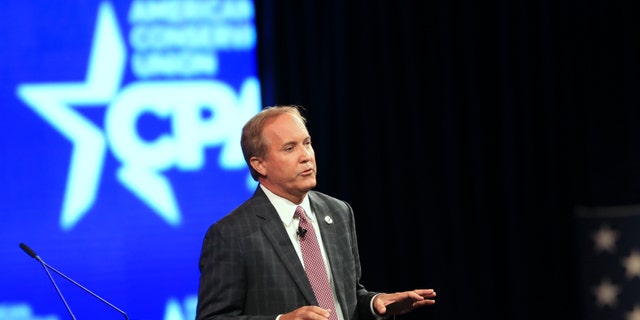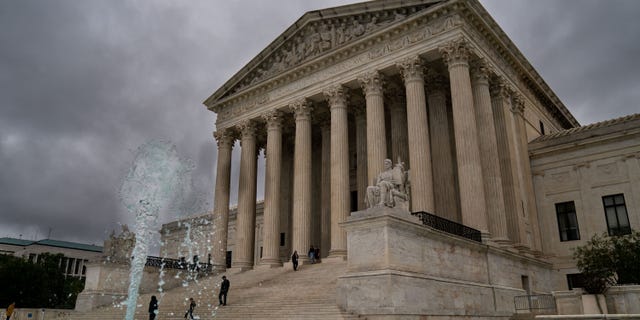
Texas Attorney General Ken Paxton believes Elon Musk appears to want “freedom of speech to dominate the internet” and would welcome him if the Tesla CEO goes ahead with its Twitter acquisition.
Musk has been in a legal battle with Twitter after backing out of a deal to buy the social media platform.The judge overseeing the case suspended proceedings on Thursday Musk proposes to move on Original deal to buy Twitter for $44 billion.
“He seems like a guy who wants free speech to rule on the internet,” Paxton told Fox News. “I welcome someone into the marketplace and only allow people to speak freely, not try to restrict them based on their political or religious stance. “
“These are the sacred rights and sacred ideals that our founders built this country on,” Paxton added.
Media worried about Musk taking over Twitter because they don’t trust American intelligence, critics say
Elon Musk has been locked in a legal battle with Twitter after his deal to buy the social media giant fell through.
(Getty Images)
The attorney general has been waging a legal battle with the social media giant. On Sept. 16, a federal appeals court ruled in Paxton’s favor and lifted an injunction against a Texas law that barred social media companies from posting posts based on a user’s political affiliation.
Elon Musk advocates free speech at Twitter plenary, says media ‘almost never’ gets it right
NetChoice and the Computer and Communications Industry Association, whose members include Facebook, Twitter and Google, sued the state of Texas after the legislation passed. The plaintiffs argue that the law is unconstitutional and violates their First Amendment rights to curate content that appears on their platforms.
But Paxton argued that it was a violation for tech companies to censor posts.
“We’re talking about people being able to express their opinions,” he told Fox News. “If we don’t stop this, we’re going to lose the ability to have almost freedom of speech in this country … which means that people with more liberal views have a huge advantage over those with more conservative views.”
“So, now the Fifth Circuit is saying, ‘Hey, wait a minute, you don’t have the ability or discretion to edit a comment that you don’t like or that you don’t agree with,'” Paxton said.
Supreme Court hears case of BIG TECH’s legal immunity over disputed content

Texas Attorney General Ken Paxton is fighting the social media giant in court over a Lone Star state law that bars platforms from banning content based on its politics.
(Getty Images)
The case focuses on topics related to Section 230 of the Communications Decency Act. The 1996 statute protects Internet companies from lawsuits related to content posted by third parties on their websites.
In other words, Facebook will be protected if, for example, users post defamatory or defamatory content.
“The original setup was to make them a bit like a billboard or a place where you could post information,” Paxton told Fox News. “They’re not considered publishers, so they’re not responsible for what people post on these sites, Therefore, they cannot be sued for libel or libel.”
Federal Court Rules BIG TECH Does Not Have ‘Freedom Wheel First Amendment Review Powers’
But now, Paxton said, social media companies act as publishers by censoring content — especially content that tends to be conservative — while still benefiting from legal protections.
“If they can basically suppress free speech and views — conservative, Republican views — they can give Democrats a huge advantage across the country, local to president, local to president,” he told Fox News .
Supreme Court opens new term with oral arguments
“They’re arguing that they’re not publishers and they can’t be sued, but they’re playing the role of publishers,” Paxton continued. “So when these states come in and try to regulate it, they’re arguing on both sides.”
Content moderation varies by social media platform, but tech giants like Twitter and Facebook typically censor posts they deem to be misinformation or hateful or encourage violence. Paxton and other Republicans argue that conservative users and views are disproportionately involved in tech companies’ enforcement, even when they are later reversed.
“Our argument is that if you’re going to take advantage of Section 230 protections and claim that you’re not a publisher, then you can’t act like a publisher and discriminate against opinions,” Paxton said. “You shouldn’t be allowed to protect yourself from defamation or libel because other publishers can’t do that.”

The legal battle over Big Tech censorship could soon go to the Supreme Court.
(Getty Images)
Click here for the Fox News app
But as Paxton celebrated his victory in Texas, a conflicting Florida ruling on a similar law showed the problem can go to the Supreme Court.
The Republican Attorney General speculates, “These tech companies, hidden under the name NetChoice, will appeal to the U.S. Supreme Court and hope the court agrees with their position that they can get 230 protection at the same time — claiming they’re not publishers — and then claim that They are publishers when discriminating against views they disagree with,” Paxton told Fox News.
“I hope the Supreme Court doesn’t subscribe to that assertion,” he said.
Ramiro Vargas contributed to the accompanying video.



